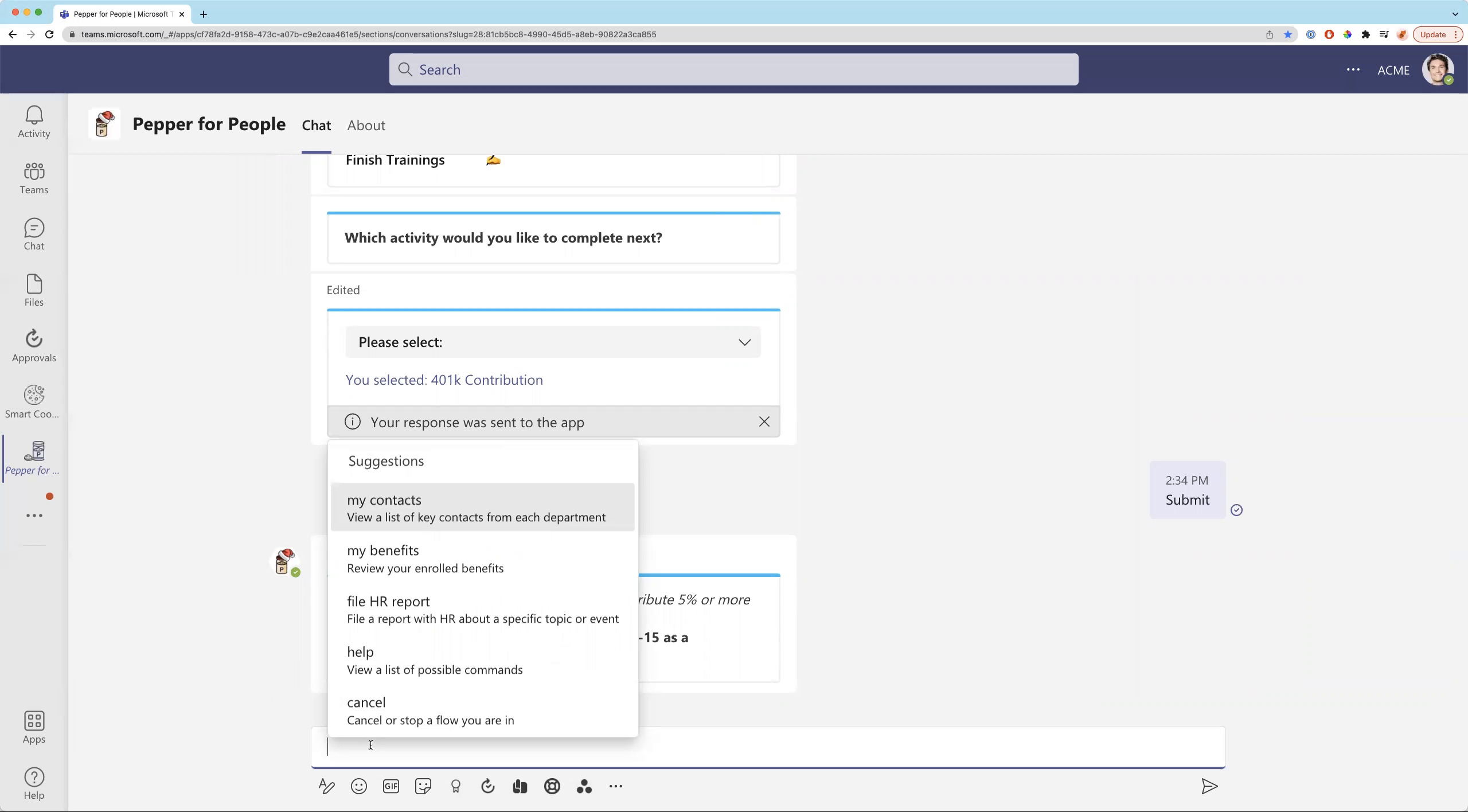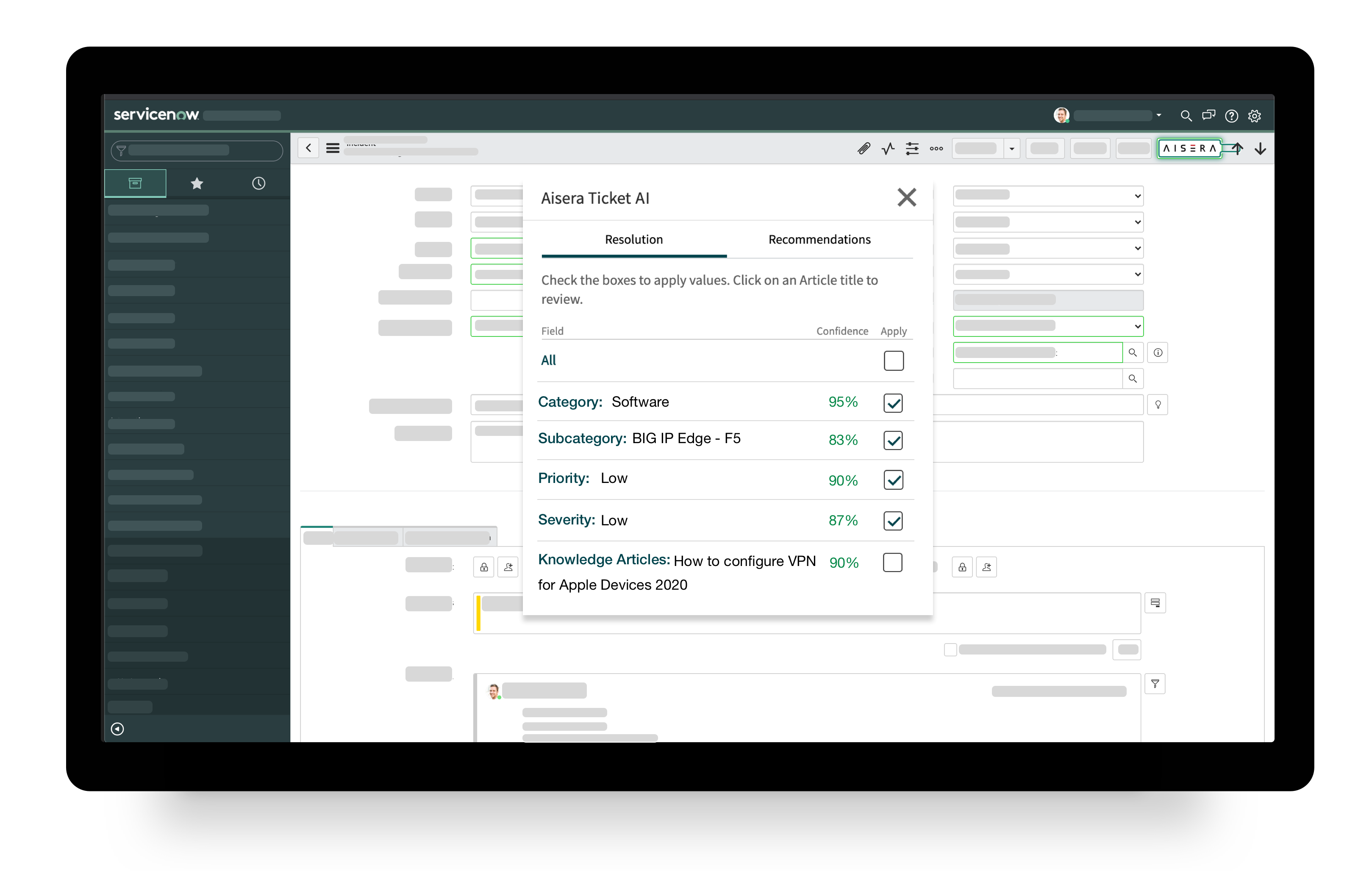Aisera, a startup developing what it describes as an “AI-driven” support ticketing system, today announced that it raised $90 million in Series D funding led by Goldman Sachs with participation from True Ventures, Menlo Ventures, Norwest Venture Partners, Icon Ventures, Khosla Ventures, First Round Capital and others. CEO Muddu Sudhakar said the new cash will be put toward market expansion and supporting Aisera’s go-to-market strategy, in addition to investing in the company’s product development, R&D, sales and marketing initiatives.
Sudhakar says he built Aisera after perceiving the need for “predictive AI” solutions that could auto-resolve customer service, IT, sales and operations problems. Leveraging AI, the platform plugs into existing systems of record, including help desk portals, to respond to incoming inquiries and requests.
Sudhakar founded Aisera in 2017 alongside Christos Tryfonas, a longtime colleague. Sudhakar most recently led teams at ServiceNow and EMC, previously founding startups (Caspida, Cetas, Kazeon and Sanera Systems) that were acquired by VMware and Splunk. Tryfonas, a former AT&T Bell Labs researcher, worked with Sudhakar at several of his ventures before joining Aisera.
“We thought [the pandemic] would be a problem, but Aisera’s technology does very well in remote environments. Customers wanted AI and automation to drive user engagement and adoption,” Sudhakar told TechCrunch in an email interview. “Now in the current market downturn, we’re seeing the need for cost reduction on licenses and people. This is driving demand for Aisera as we’re able to help organizations reduce costs for IT and business services.”
The way Sudhakar explains it, Aisera’s platform learns to resolve issues through a combination of language-analyzing AI and robotic process automation, or RPA. RPA technology attempts to mimic the way people interact with software to accomplish basic, repeatable tasks at scale. It’s not a particularly novel idea — RPA vendors, including Automation Anywhere and UiPath, claim to be able to do this to some extent. But Sudhakar asserts that Aisera’s brand of RPA is custom-built for customer/employee service use cases.

Image Credits: Aisera
“In some ways, Aisera competes with ServiceNow and Zendesk, but it’s also complementary to those solutions as we partner with them as well as Amazon Web Services, Microsoft, Salesforce, Atlassian, and Cisco,” Sudhakar said. “Aisera is unique and differentiated with ontology and taxonomy for each domain and vertical industry … [We also do] AI learning and training on customer data sets to capture specific intents, phrases, utterances required for natural language processing and natural language understanding.”
When a request comes in via email, voice, a ticket or a chatroom, Aisera attempts to understand it by analyzing it with an algorithm trained to understand language. The platform then cross-references sources like ServiceNow, Salesforce, Oracle, Confluence and SharePoint for customer data to personalize its replies to the request. After that step, Aisera creates a list of actions that need to be completed to fulfill the request, which it submits to a “workflow management” engine.
Aisera can return articles or snippets of articles from a company’s knowledge base that most likely answer a customer’s question. Moreover, it can automatically take certain actions itself, like resetting a user’s password — that’s where the RPA comes in — or route requests to the appropriate team. For trickier problems, Aisera can provide “next-best action” recommendations to teams as well, improving with each additional data point.
“Our technology helps companies improve their operational results while enabling them to constrain costs associated with help and service desk support, customer service and support, and [more],” Sudhakar added. “Aisera delivers solutions for both large and small organizations that can be used across business-to-business and business-to-consumer markets for IT, HR, cybersecurity, customer service, sales, marketing, legal, and finance departments.”
Aisera claims to do a lot. Unfortunately, without access to internal data, it’s tough to known how well its product works in practice. The platform supposedly recognizes over 70 languages, but does it understand all of those languages equally well? What happens when Aisera makes a mistake (e.g., fetches the wrong support article) in resolving requests? It’s unclear; we’ve asked the company for more information.
Taking a step back to examine the larger industry, though, it’s clear that there’s a strong interest in AI technologies for customer service. A 2021 survey from ManageEngine (the IT division of Zoho) found that 59% of execs in the U.S. are applying AI — for example, in chatbots — to enhance customer service in some way. Whether realistic or no, AI is viewed by many as a path to higher efficiency (i.e., handling more customer inquiries with fewer resources) and greater personalization (e.g., upselling).

Image Credits: Aisera
It’s no panacea — findings are mixed on whether customers prefer even basic chatbots to human agents. But the hype around AI has fueled the rise of startups such as Lang.ai, which automatically tags customer conversations to resolve service issues. Last year, Zendesk acquired Cleverly, whose product platform provided a series of AI-powered capabilities, including a triage function to automatically tag incoming service requests to help categorize workflow. There’s also Ultimate.ai, a data-ingesting, bot-builder platform; Ushur, which offers a service for businesses to create AI-based communication flows; and Tidio, a suite of live chat apps and AI-powered chatbots.
Competition aside, Sudhakar believes Aisera is well-positioned for growth with over 100 customers and close to 80 million users. Current subscribers include brands like Zoom, Chegg, McAfee, and Autodesk, plus federal, state, military and defense agencies.
“We’re in a somewhat recession-proof industry where our cloud-native and AI-native technology can better accommodate budgets in contrast to others. AI and automation are key foundational pillars to beat inflation,” Sudhakar said. “Aisera is experiencing massive growth — 300% year-over-year — with gross margins between 80% to 90%. . . . While the tech industry faces levels of uncertainty and some economic headwinds, business for Aisera is booming.”
To date, Aisera, which employees around 250 people, has raised $180 million in capital.















 English (US) ·
English (US) ·